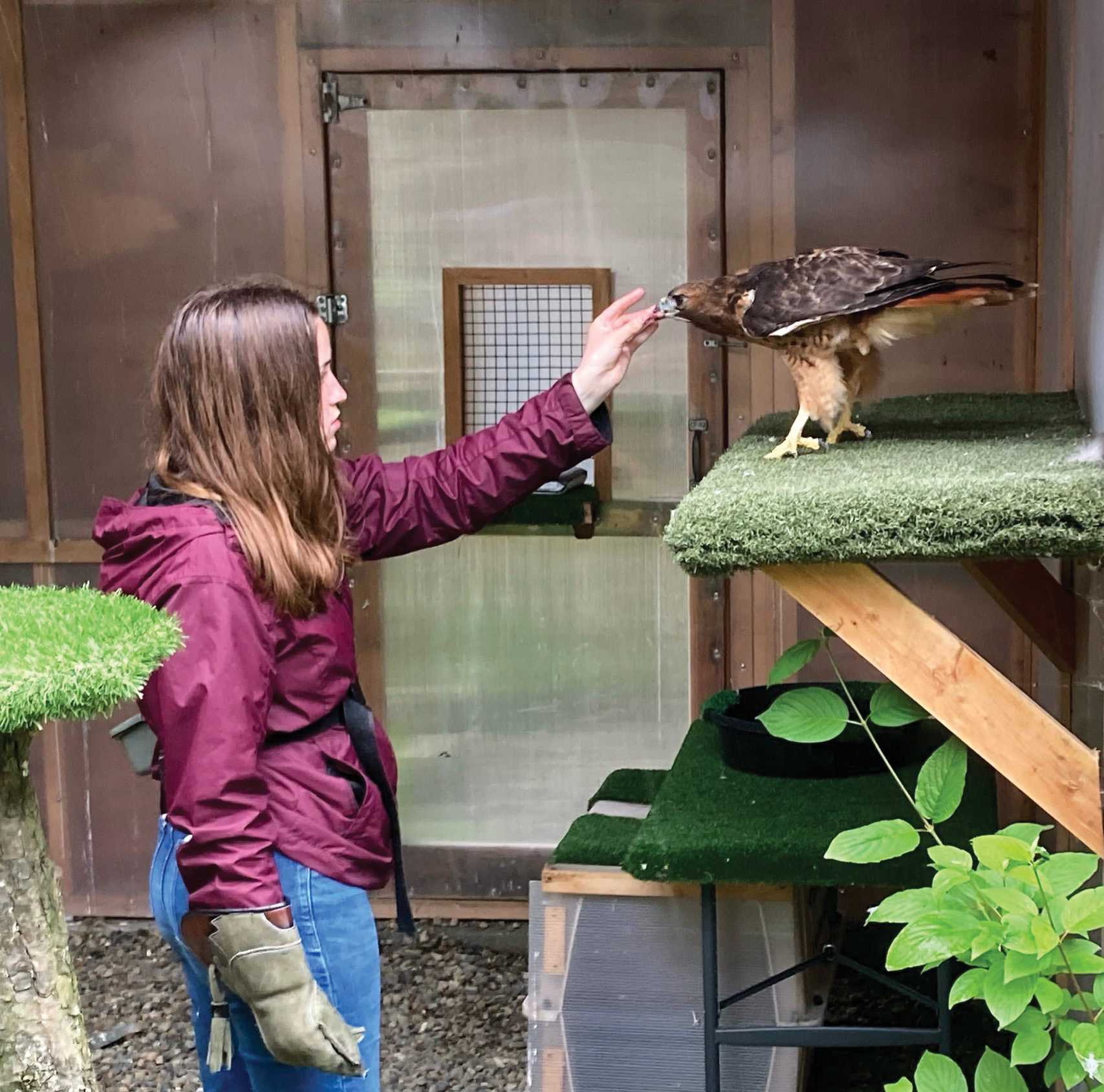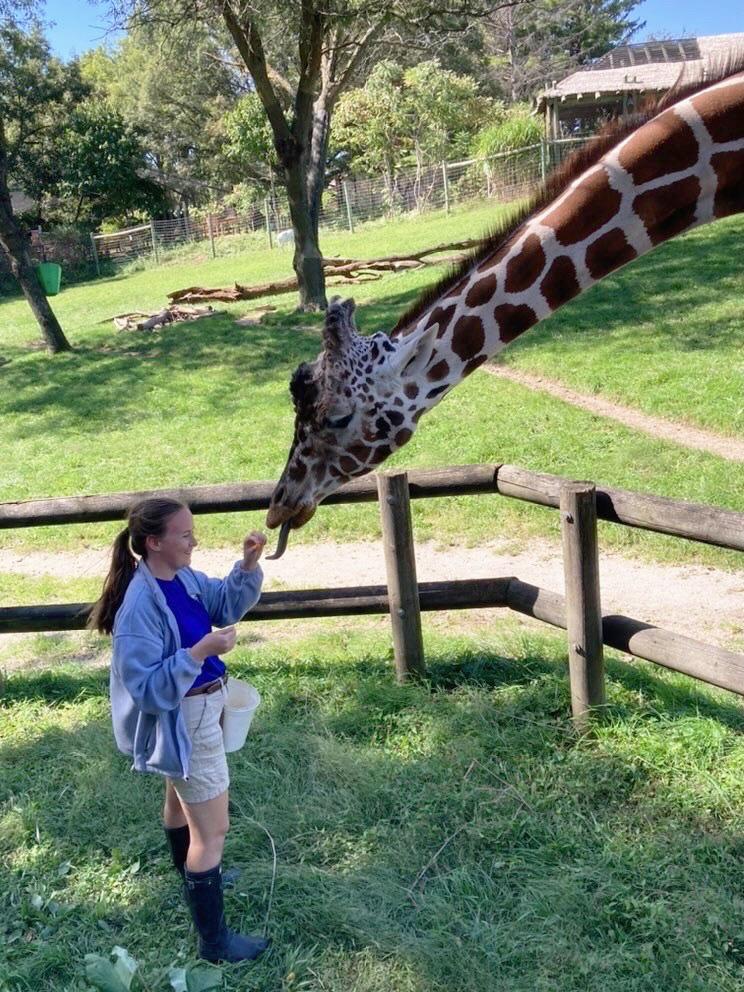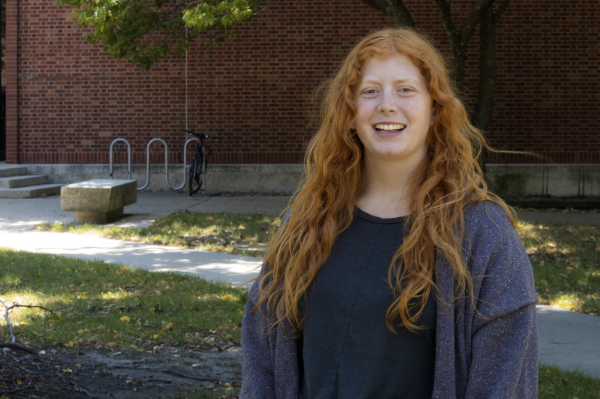
On the first day of class this year, junior Sabrina Delaney hopped online and added a major. With that change, she officially began studying both biology and zoo and conservation science — an opportunity that wasn’t available last year.
Drake University just expanded its zoo and conservation science program to a full degree this fall.
“It is why I came to Drake, so it is cool that it is a major now,” Delaney said. “I never really planned on double majoring, but then it got added, which worked out really nicely.”
Delaney said she became passionate about science education after a class field trip to a children’s museum. She started volunteering at the Omaha Zoo in middle school then continued following her passion through Zoo Academy, a partnership between the Omaha Zoo and her high school. When looking at colleges, she was intrigued by the zoo and conservation science J-terms offered by Drake.
“I don’t want to be the teacher, but I want to be where you take your class on the field trip,” Delaney said. “I like sharing what I am passionate about with others and seeing them passionate.”
Delaney said she is very excited about the new zoo and conservation science major and hopes the program’s new status will expand her opportunities post-graduation.
Prior to the addition of the major, students were studying zoology as either a concentration or an individualized major. Professor of wildlife biology Dr. Keith Summerville, worked with colleagues to put together a curriculum proposal, which received approval from Drake’s Deans Council and Board of Trustees. Summerville said he thought it was important to establish zoo and conservation science as a major due to the number of students who displayed interest in zoology.
According to Summerville, a number of potential students also wished to pursue this major. Drake University has partnered with zoos that offer high school programs to promote the major to high school students.
“[The program] generally recruits a cohort of students to Drake that otherwise wouldn’t come here,” Summerville said. “In fact, we are pulling students that would have gone somewhere else to Drake because they like what our program consists of.”
Moving from a concentration to a major is not too difficult, according to Summerville and Delaney. Summerville explained that the two are fairly similar. Additionally, Delaney said that the number of credits required for a zoo and conservation science concentration was already higher than some majors, so it made sense that it should be worth more.
The new curriculum features an emphasis on real-world experiences, requiring two internships and one full year of research. Summerville said that they are trying to build connections so students in the program can have a truly national and diverse experience.
“The more relationships we can build with wildlife rehabilitation and conservation facilities like zoos, the more we can develop concrete professional development pathways for students,” Summerville said.
Currently, Drake University is connected with local organizations like the Blank Park Zoo and the Ape Cognition and Conservation Initiative. Jenna Baker, a senior majoring in environmental science with a zoo and conservation science concentration, has worked for both organizations as an animal care intern.
“I think the zoo major here at Drake is special because of our close connections with the Blank Park Zoo and the Ape Cognition and Conservation Initiative,” Baker said. “Our professors in the environmental science department have always had close ties with those organizations, so now that we have the zoo program, we are able to get people in the major placed at those centers so they can get those professional experiences.”
Baker’s internship allowed her to learn general animal husbandry and what it is like to be a zookeeper in a zoo setting. She worked closely with the animals by making their diets and keeping habitats clean.
“It was really fun for me, and it was a great experience as well,” Baker said, “Those two internships count towards my internship requirement for the concentration, but it is also just really cool to be able to go to these cool places.”
Delaney interned at The Blank Park Zoo with the large mammal team. A baby giraffe was born during her time with the zoo, so Delaney had the opportunity to watch him grow up.
According to Summerville, Drake University’s postgraduate placements are very high because of the professional preparation built into the curriculum. Summerville said that students are very well-trained for a career in the field.
“Students are getting this curriculum and going on to succeed in a variety of zoo facilities [and] wildlife rehabilitation facilities,” Summerville said. “Some end up going into veterinary medicine. It has been very successful so far.”








